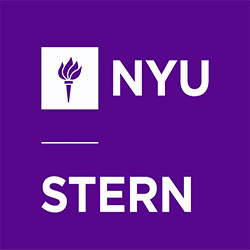 Christy Kim is a MBA candidate at NYU Stern’s Andre Koo Tech MBA program, specializing in Business Analytics and Product Management. Prior to Stern, she worked at Deloitte Consulting, driving large-scale data and analytics transformations for clients across various industries. She additionally brings a background in product marketing, alliances, and tech sales and graduated from Duke University.
Christy Kim is a MBA candidate at NYU Stern’s Andre Koo Tech MBA program, specializing in Business Analytics and Product Management. Prior to Stern, she worked at Deloitte Consulting, driving large-scale data and analytics transformations for clients across various industries. She additionally brings a background in product marketing, alliances, and tech sales and graduated from Duke University.
As a prospective candidate, you have two options:
- MBA experience with a summer internship (traditional 2-year program)
- MBA experience with multiple in-semester projects for top companies (welcome to our world!)
If I were presented today with the same options above, I would still choose option B in a heartbeat. Here are the 5 reasons why I believe our experiential learning curriculum provides above and beyond what can be gained through a summer internship alone:
1. GUARANTEED ‘INTERNSHIPS’ WITH TOP COMPANIES – and no recruiting or interviews required! Our 2-year MBA counterparts spend their first year recruiting for their summer internships; however, we fortunately had the following in-semester project opportunities land in our laps as part of our experiential learning courses:

- ‘Tech Immersion’ (Summer): Pfizer, KPMG
- ‘Tech Solutions’ (Fall): 13 companies across various industries and of all sizes – including Waze, IKEA, PayPal, and Roku
- [Optional] ‘Endless Frontier Labs’ (Fall & Spring): In place of ‘Tech Solutions’, you have the opportunity to take this course for hands-on work with Life Sciences, Digital Tech and Deep Tech startups
Through the above, some students have even found full-time employment opportunities with their respective companies!
2. BOOST YOUR LINKEDIN/RESUME. Through our experiential learning projects we act as consultants to the companies listed above. This is outstanding real world work experience which helps build our skills and our resume. We can also share our success during the recruiting process.
3. LEARN, APPLY, MAXIMIZE. The beauty of our experiential learning curriculum is that the course lessons are directly aligned to our project expectations and deliverables. For example, we had the following interactive sessions over the summer to help with our client deliverable preparations:
- Problem abstraction and hypothesis development with a design manager at Google
- User persona and empathy map with NYU’s leading UI/UX professor
- Mock pitch session with the global leader of GS Accelerate (Goldman Sach’s internal incubator)
In addition, we also had the opportunity to apply our learnings from our core courses (e.g. Entrepreneurship, Strategy) to our projects as well. This chronological, methodological yet practical approach to learning is one that I have yet to experience in my undergraduate years or professional life.
4. FAIL SAFE, LEARN FAST – a key, unique benefit of the experiential learning experience. With formal summer internships, there may be less opportunity for interns to ‘fail safe’ as their individual return offers are on the line. Through the Tech MBA program, our experiential learning curriculum allows us to:
- Consult for top companies with a focus on innovation, experimentation, and learning (shoutout to our professor, J.P. Eggers, for always ensuring that our client project direction stayed on course for learning maximization!)
- Receive continuous direction and feedback from our clients and project leadership (e.g. we had review/feedback sessions every 3-4 weeks)
- Collaborate and lead in a small group setting with our classmates (e.g. my group maintained rotating leaders on a weekly basis)

5. TIME TO EXPLORE (& CONFIRM). The summer ‘Tech Immersion’ course served to be a great kickoff to the exploration of my post-MBA career path. I had planned to use this time in the MBA to confirm my continued career in tech consulting or explore other paths (specifically product management) that may be a good fit with my long-term career goals. The course not only helped re-confirm my continued passion for client services (i.e. Pfizer project), but also provided a great introduction/sneak peek into the world of product management. I plan to build on these experiences and continue the exploration through the rest of the program; I am excited to see what the future holds for not only myself, but also for our entire cohort!






